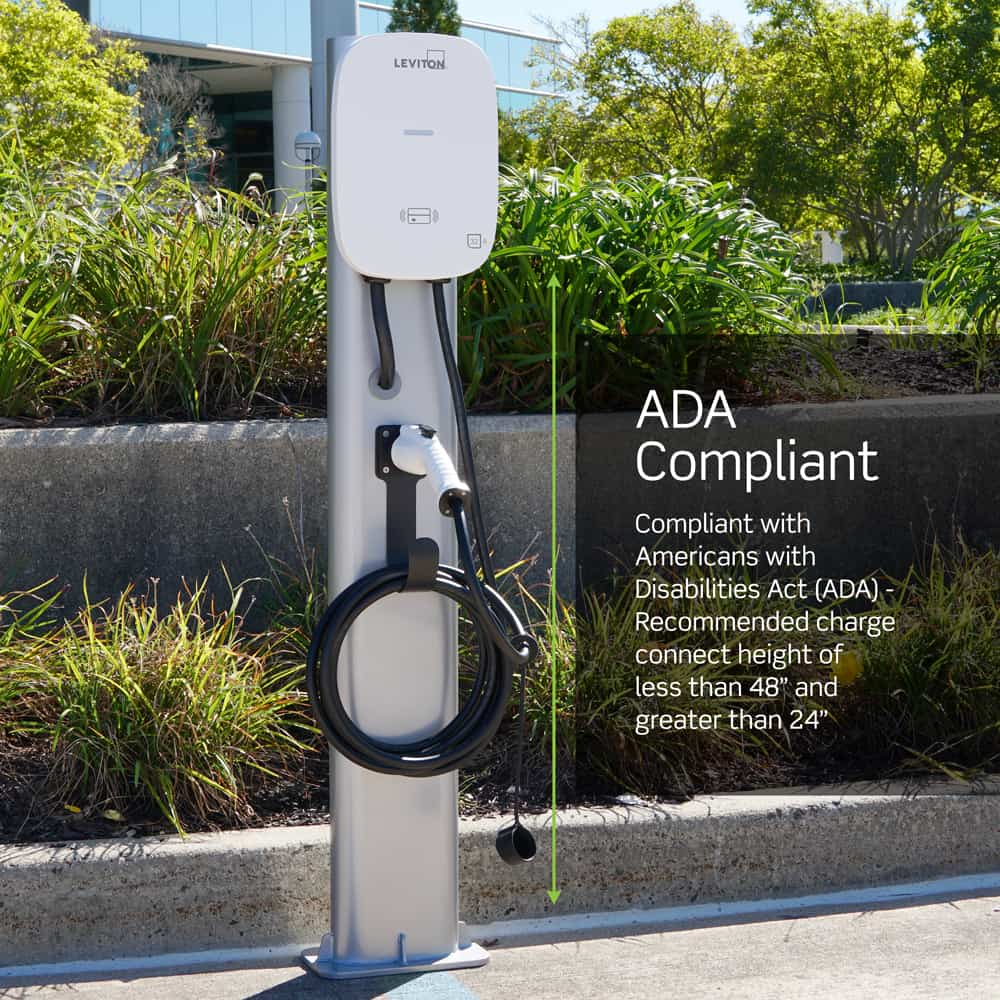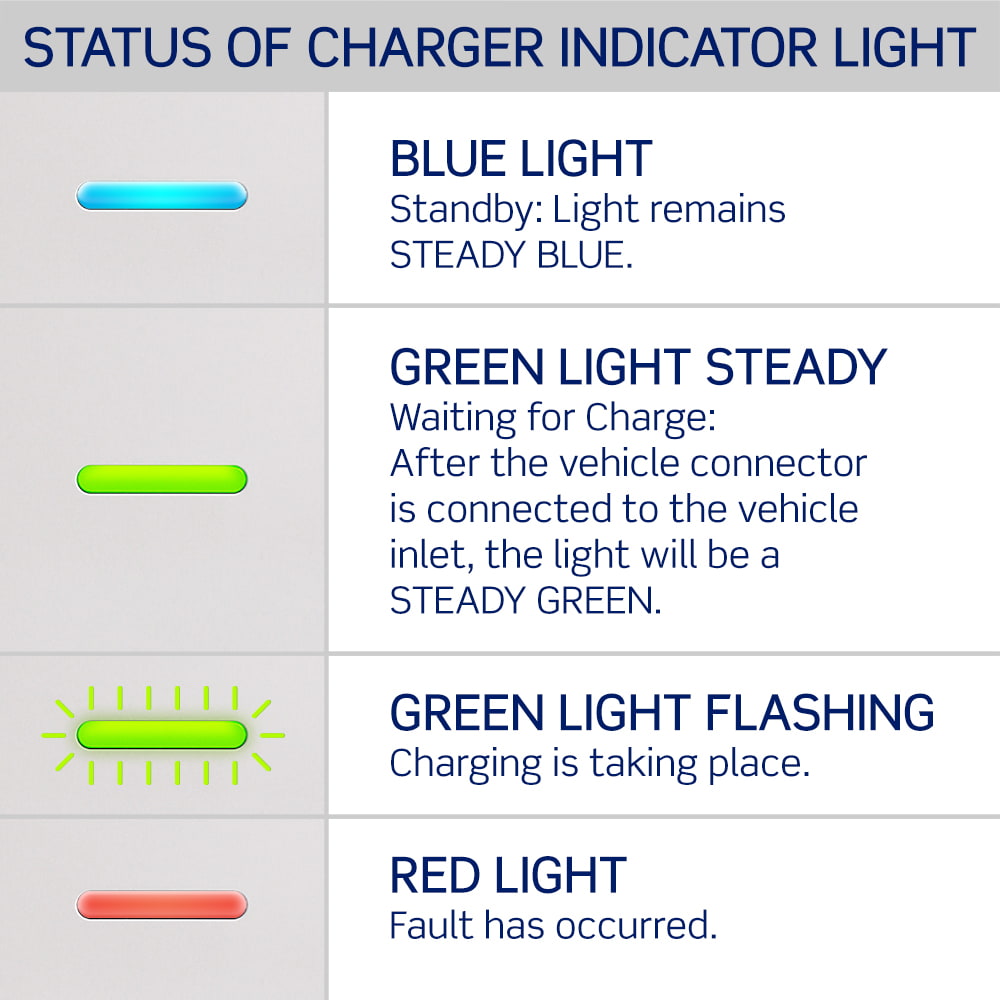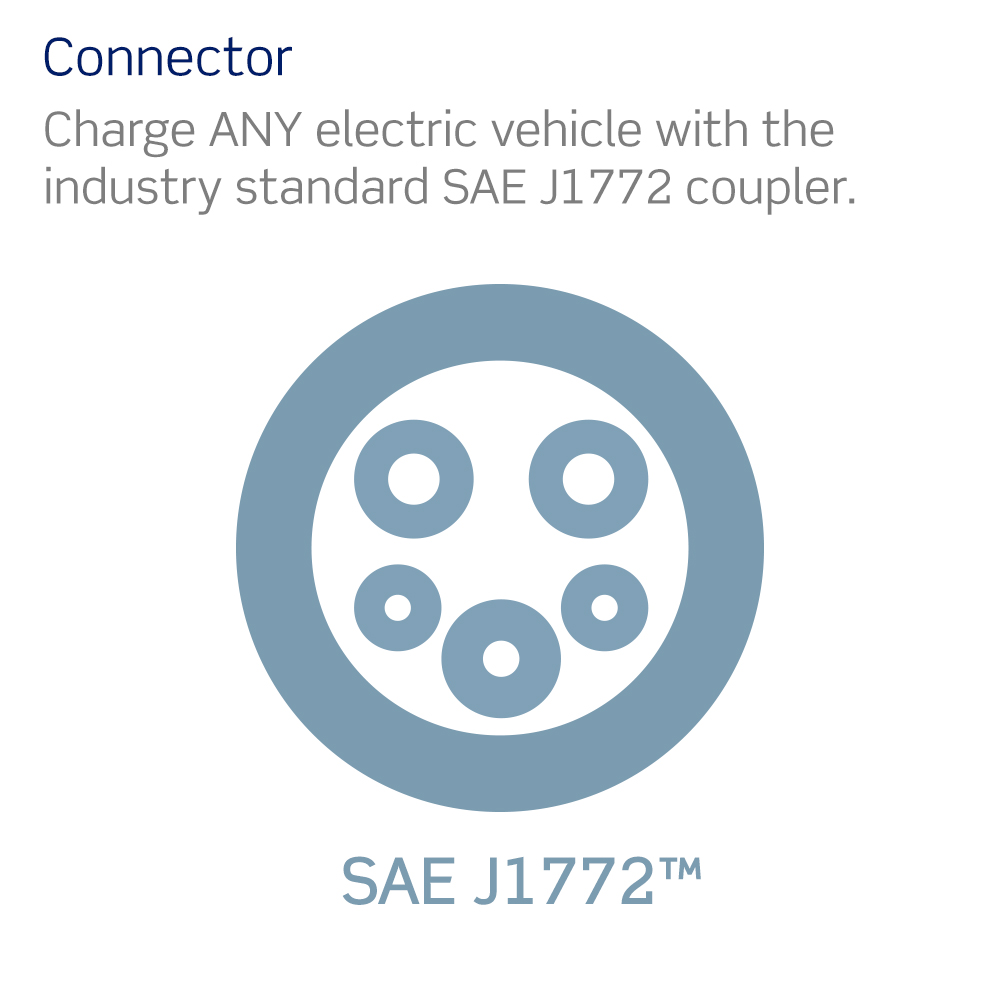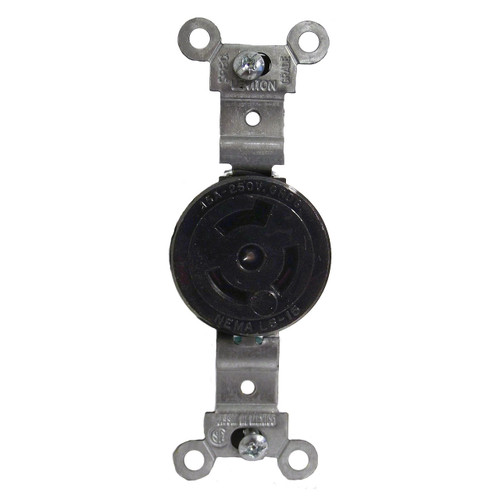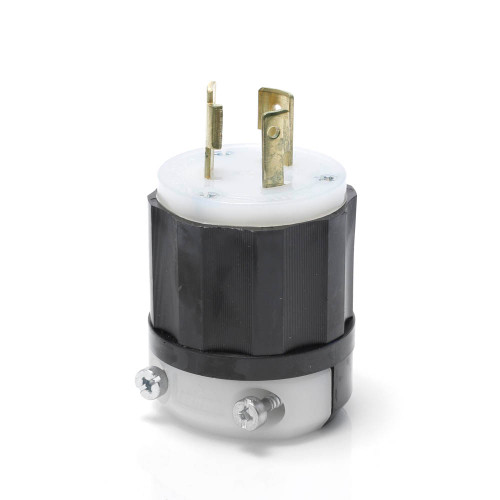Product Description
Leviton 32 Amp Level 2 Electric Vehicle Charging Station
EV Series Level 2 Electric Vehicle Charging Station, 32 A, 208/240 VAC, 7.6kW Output, J1772 Charge Connector, 18' Cord, Replacement for EVR30-B1C and EVR30-R2C, Includes Mounting Bracket and Pre-Attached Input Cable, Hardwired
- Fast and secure charging of any SAE J1772™ compatible electric vehicle
- Optional access control; station comes with RFID disabled - simply tap RFID card to activate
- Cable design prevents cord from freezing and cracking in extreme weather
- For indoor and outdoor use with a thermoplastic, water-resistant enclosure rated NEMA Type 3R
- Easy installation with pre-attached input cable and mounting hardware included
- Energy Star Certified
Amperage: 32 A
Breaker: 40 A
Charge Connector Cord: #10 AWG SAE J1772
Number of Phase / Wire: L1, L2 and Ground, Bottom Feed
Operating Temperature: -30°C to 50°C
Output Power: 7.6kW
Short Circuit Current Rating: 20 mA CCID per UL 2231
Voltage: 208/240 VAC
Altitude: Up to 6,500 ft. (2,000 m)
Charging Cable Operating Temperature: -30°C to +50°C
Cooling: Natural Cooling
Operating Humidity: < 95% Relative Humidity, Non-Condensing
Enclosure Material: Plastic (PC+PBT)
Enclosure Rating: NEMA Type 3R
Status Indicator: Power Present, Charging, Fault
Cable Length: 18 ft. (5.5 m)
Application: Home, Commercial
Cover Locking Mechanism: Phillips Head Screws, No Padlock Option
Device Type: Charger
Standards and Certifications: UL2594, UL 2231-1, UL 2231-2, UL 2251, UL 62, UL 991, UL 1998, NFPA 70 Article 625, UL840, CSA Std. C22.2#280, OCPP 1.6 Compliant
Warranty: 2-Year Limited
Electric Vehicle Charging Frequently Asked Questions
What is the difference between Level 1, Level 2, and DC Charging?

Level 1 charging stations are typically provided with an EV purchase and use a J1772 connector. They are rated 120 Volts and can be plugged into a standard NEMA 5-15 household outlet. Level 1 provides the slowest charging time, averaging 5 miles of range per hour of charging.

Level 2 charging stations are the most common type of charging stations in the US and North America, using a J1772 connector. As of 2022, over 85% of public EVSE ports in the US were Level 2. They are rated 240 Volts and charge faster than Level 1, averaging 25 miles of range per 1 hour of charging. Level 2 charging stations are common for homeowners, workplace, and other commercial/public locations.

DC charging stations, often referred to as "Level 3 Charging Stations", use direct-current to provide quick charging. They use CCS connectors (also known as J1772 combo) and CHAdeMO connectors. They are typically rated 208/480 Volts and charge faster than Level 2, averaging 100-200+ miles of range per 30 minutes of charging (or 200-400+ miles of range per 1 hour of charging) and are common at rest stops, gas stations, shopping malls, and other public locations.
How long will it take to charge a vehicle?
Charging times can vary depending on the vehicle, it’s battery capacity, current level of charge, and the energy source’s capacity.
Below are averages from the Alternative Fuels Data Center of the Department of Energy.
Level
AC or DC
Miles of Range Per 1 Hour of Charging*
Connector Types
Level 1
AC
5

Level 2
AC
25

DC (often referred to as "Level 3")
DC
200-400+

*Charging time may vary depending on the vehicle and battery capacity.
What is the difference between AC and DC charging?
- AC Charging – AC power is put into the vehicle from a charging station, and then the converter inside the vehicle converts it to DC power.
- DC Charging – the charging station, with a built in convertor, converts AC to DC, and then the vehicle receives DC power directly from the charger, allowing for faster charging. DC Charging is often referred to as Level 3 Charging
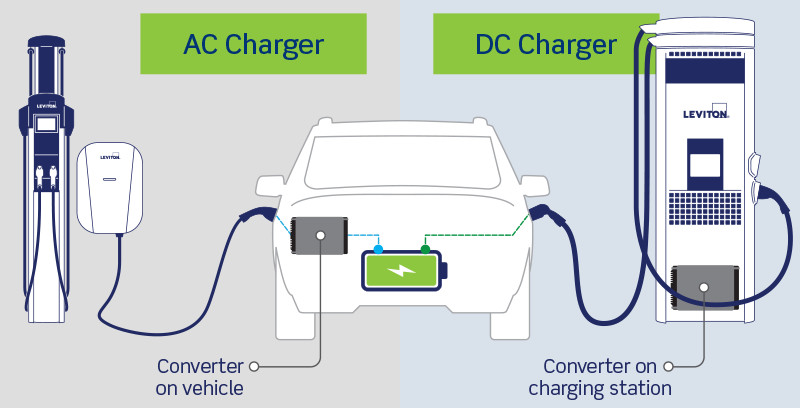
-
As a homeowner, how will this affect my electricity bill?
To estimate your cost of charging at home, multiply your vehicle's kWh/100 miles figure by the electric rate for the time of day you'll most often be charging. That figure will tell the cost per 100 miles.
I have a Tesla – where can I charge?
While the popular Tesla Superchargers in public spaces can ONLY charge Tesla vehicles, you can charge your Tesla virtually anywhere, including Leviton stations! Every Tesla purchase comes with a J1772 adapter that will allow you to use Level 2 stations, and Tesla cars can already accept DC charging stations.



